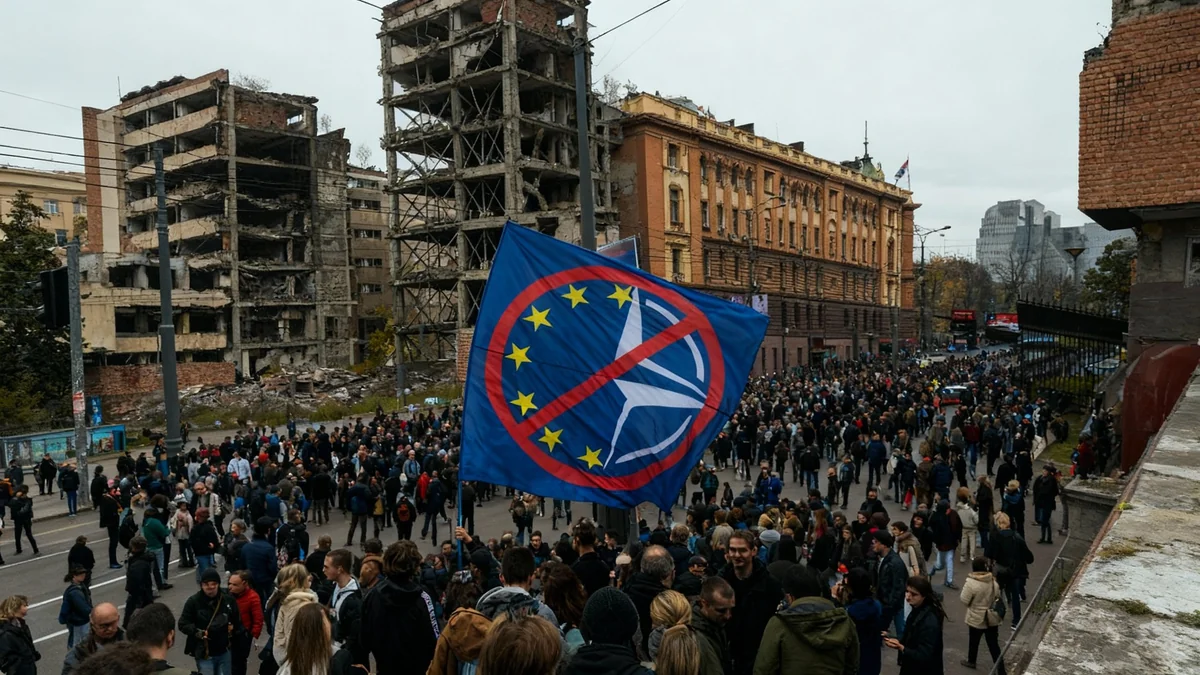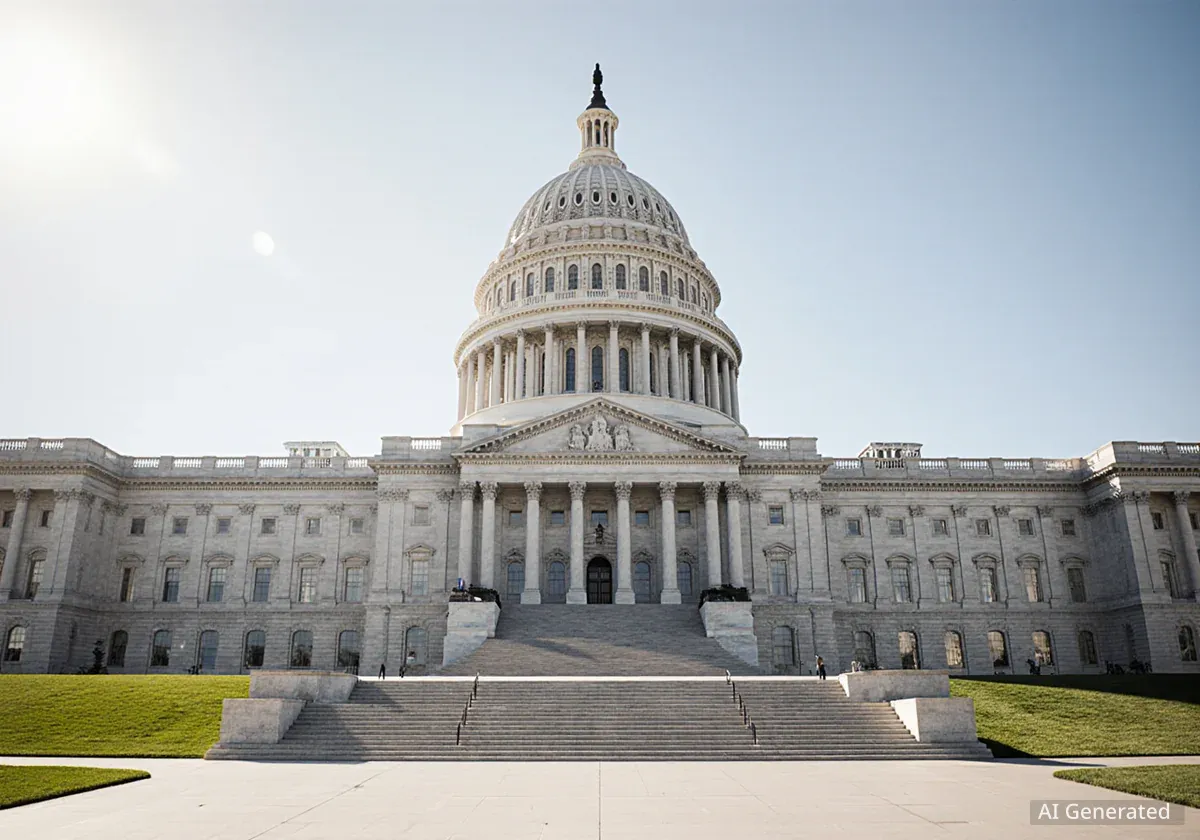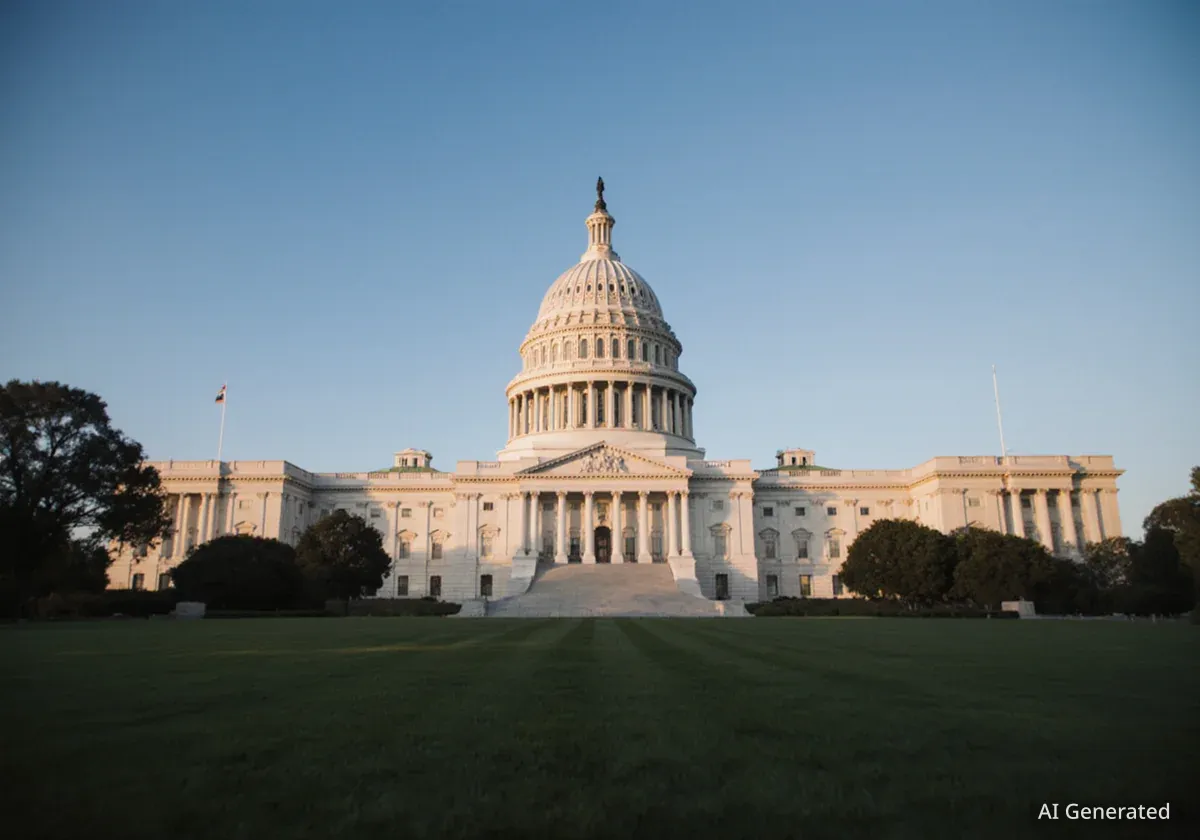Thousands of protesters gathered in Belgrade on Tuesday, forming a human shield around the former Yugoslav army headquarters to block its planned demolition. The site, partially destroyed during the 1999 NATO bombing campaign, is slated for a controversial luxury redevelopment project linked to an American company.
Demonstrators, many of them students, symbolically encircled the sprawling complex, drawing a red line on the ground to signify their opposition. The protest challenges a government-backed plan to replace the historic buildings with a high-end hotel and office complex.
Key Takeaways
- Thousands of protesters formed a human shield around the former Yugoslav army headquarters in Belgrade.
- They oppose a $500 million plan to demolish the site for a luxury complex by a company linked to Jared Kushner.
- The building is a potent symbol of the 1999 NATO bombing and is considered an architectural monument by many.
- Serbia's government passed a special law to facilitate the project, bypassing existing legal protections.
A Human Shield in Central Belgrade
The protest saw a significant turnout as citizens vowed to protect the buildings from demolition. The atmosphere was charged as demonstrators linked arms, creating a physical and symbolic barrier against the redevelopment plans. The act was a direct message to the government of President Aleksandar Vucic, which has championed the project.
Organizers, primarily youth-led groups, stated their goal is to have the complex's protected heritage status restored. The government had previously stripped the site of this status, a move that is now under investigation by Serbia's organized crime prosecutors amid allegations that documents were forged.
"This is a warning that we will all defend these buildings together," one student protester announced to the crowd. "We will be the human shield."
The demonstration is the latest escalation in a series of public outcries against the project, which has faced fierce opposition from architects, historians, and the general public both within Serbia and internationally.
The Controversial $500 Million Project
At the center of the dispute is a plan valued at $500 million to construct a luxury hotel, high-end apartments, office space, and shops on the prime real estate in downtown Belgrade. The project is led by Affinity Global Development, a U.S.-based company with ties to Jared Kushner, son-in-law of former U.S. President Donald Trump.
The Government's Position
President Vucic's government has defended the redevelopment, arguing it will stimulate economic growth and strengthen ties with the United States. To push the deal forward, Serbian lawmakers recently passed a special law, effectively clearing the path for construction despite the legal challenges and public opposition. The government signed a 99-year lease agreement with Kushner's company for the site.
Critics, however, argue the deal lacks transparency and disregards the site's historical and cultural importance. The investigation into the removal of its protected status has added another layer of controversy, raising questions about the legality of the entire process.
A Symbol of National Resistance
For many Serbians, the damaged army headquarters is more than just a collection of buildings; it is a powerful symbol. The structure, a prominent example of mid-20th century architecture, has stood in its ruined state for over two decades as a physical reminder of the 78-day NATO bombing campaign in 1999.
The 1999 NATO Bombing
The NATO intervention was launched to force then-President Slobodan Milosevic to end a crackdown on ethnic Albanians in Kosovo. The campaign remains a deeply sensitive topic in Serbia, where many view it as an act of aggression. Anti-NATO sentiment persists, making the involvement of a high-profile American entity in redeveloping a bombed military site particularly contentious.
Protesters and preservationists argue that the buildings should be restored and repurposed, possibly as a museum or cultural center, to honor their place in the nation's history. The idea of replacing a symbol of national resistance with a luxury commercial complex has been met with widespread disapproval.
Part of a Wider Political Unrest
The protest over the army headquarters is not an isolated event. It represents a flashpoint in a year of sustained street protests that have challenged President Vucic's government. These broader demonstrations were initially sparked by a tragedy in the city of Novi Sad, where a newly renovated train station canopy collapsed, killing 16 people.
That incident fueled public anger and accusations of widespread corruption and negligence in state-managed projects. The ongoing protests have since become a platform for citizens to voice their discontent with the current administration's governance.
The redevelopment plan for the Belgrade landmark has now merged with this larger movement, uniting concerns over historical preservation with deep-seated frustrations about government accountability and foreign influence.





